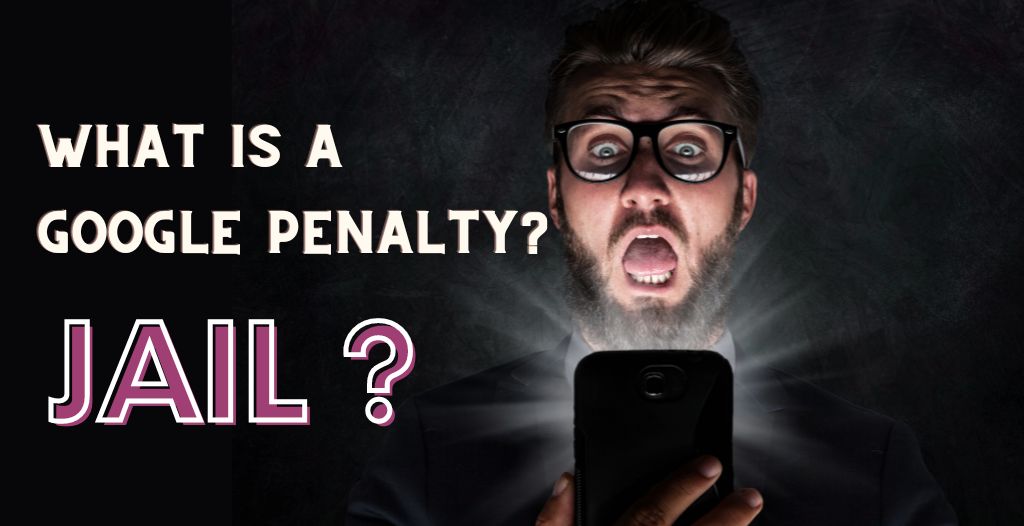Decoding the Complex Landscape of SEO and Google Penalties
In the complex world of SEO (Search Engine Optimization), understanding Google penalties is crucial for maintaining or improving your Google ranks. Whether you’re a business owner, a marketer, or someone providing SEO services, having a clear understanding of Google penalties and how to avoid or recover from them is essential. In this blog, we’ll delve into what a Google penalty is, explore its various types, and provide insights into the common reasons behind these penalties. We’ll also discuss the significant impact these penalties can have and share best practices for avoiding them.
Lastly, we’ll guide you through steps for Google penalty recovery, ensuring your site stays in line with the search engine Google’s expectations.
What is a Google Penalty?
Types of Google Penalties
Algorithmic Penalties
Manual Penalties
Common Reasons for Google Penalties
Thin or Duplicate Content
Keyword Stuffing
Unnatural Links
Cloaking and Sneaky Redirects
Impact of Google Penalties
Drop in Rankings
Decreased Traffic
Loss of Credibility
Best Practices to Avoid Google Penalties
Create Quality Content
Decreased Traffic
Follow Google's Webmaster Guidelines
Regular Audits
Steps to Recover from Google Penalties
Algorithmic Penalty: This is usually identified by a sudden drop in traffic around the time of a known Google algorithm update. Tools like Google Analytics can help you pinpoint this.
Manual Penalty: Google will notify you of a manual penalty through the Google Search Console. Check the “Manual Actions” section for any messages from Google.
For Algorithmic Penalties: Analyze your website content and backlinks. Look for common issues like thin or duplicate content, keyword stuffing, unnatural links, or user experience issues.
For Manual Penalties: Read the message from Google carefully. It will often specify the reason, such as unnatural links or thin content.
Content Issues: Improve or remove low-quality content. Make sure your content is valuable, unique, and relevant. Avoid overuse of keywords and ensure your website provides a good user experience.
Backlink Issues: Conduct a thorough backlink audit. Use tools like Google Search Console, Ahrefs, or SEMrush to identify and analyze your backlinks. Look for unnatural or spammy links and create a disavow file for them if necessary.
Technical Issues: Address any technical SEO issues like crawl errors, mobile usability problems, or slow page loading times.
After fixing the issues, submit a reconsideration request to Google via Google Search Console. In your request, be honest and transparent about the mistakes made and the steps taken to correct them.
Provide detailed documentation of your efforts, including any correspondence with webmasters for link removal and a list of changes made to your site.
Regular Audits: Regularly audit your website to prevent future penalties. Keep an eye on your content quality, backlink profile, and adherence to SEO best practices.
Stay Updated: Keep abreast of the latest Google algorithm updates and adjust your SEO strategies accordingly.
Continuous Improvement: SEO is an ongoing process. Keep improving your website in terms of content, user experience, and technical SEO.
If you’re struggling to identify or fix the issues, consider seeking help from professionals who specialize in SEO services and Google penalty recovery. They can provide expertise and resources that might be difficult to manage on your own.
Remember, the key to recovery is understanding the specific reasons behind the penalty and addressing them comprehensively. It’s not just about regaining your previous rankings but also about ensuring that your website adheres to the quality standards expected by Google, thus safeguarding against future penalties.
Securing Your Digital Future
Navigating the world of SEO services and maintaining good SEO Google rankings can be challenging, especially with the threat of Google penalties. Understanding these penalties, their causes, and recovery methods is essential for anyone looking to succeed in the digital space. By following best practices and staying informed about search engine Google updates, you can safeguard your site from penalties and ensure sustained online success.
Are you enjoying reading this blog post?
If you’re interested in having our team handle your marketing needs, please click here
About Author
Raised in India, I earned a Masters in Marketing from Swinburne University. Initially in Sales, I pivoted to Digital Media in 2013. Now, as the driving force behind Magnarevo, I leverage my expertise to guide branding and marketing, leading our sales and marketing teams. Keen on collaborations, I guide businesses to elevate their digital presence. Reach out at karan@magnarevo.com. Specialities: Branding, marketing strategy, digital media, ad management, website development, and analytics.
